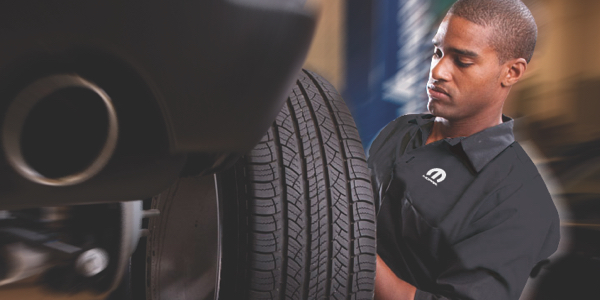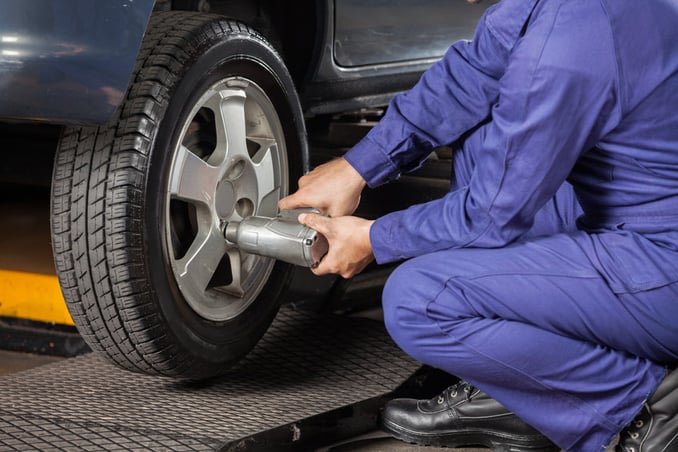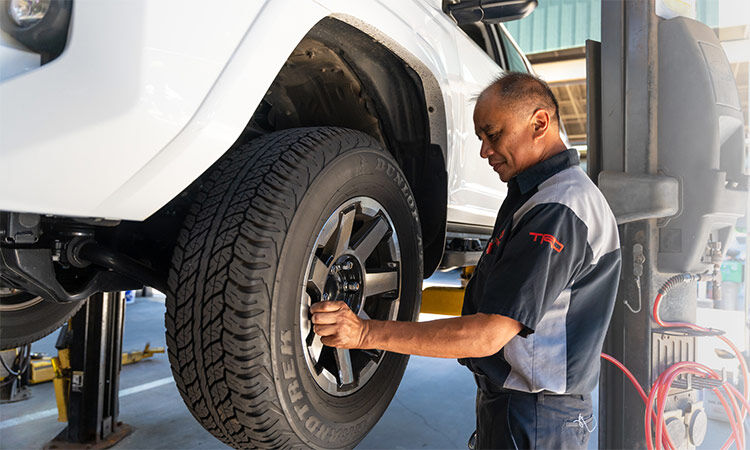Tire Service: The Impact of Weather Problems
When it comes to making sure optimum performance and security on the roadway, recognizing the effect of climate problems on tire service is important. From scorching warm to icy roads, each weather component can considerably affect tire functionality and overall driving experience. By diving right into the impacts of differing climate condition on tires, vehicle drivers can get valuable understandings that may improve their automobile's efficiency and durability. In this discussion, we will certainly explore the intricate connection in between weather and tire service, clarifying the relevance of weather-specific tire upkeep practices and considerations.
Heat and Tire Efficiency
When revealed to heats, tires experience modifications in performance that can considerably affect vehicle security and handling. The warm created from extended driving or heat problems triggers the tire rubber to soften, causing minimized tread life and enhanced wear. As the rubber comes to be softer, the tire's grasp when traveling diminishes, influencing braking ranges and general traction. In extreme situations, too much heat can even create tire blowouts, posturing an extreme safety and security threat to the lorry and its passengers.

Winter Effects
Cold weather condition problems can have a considerable impact on tire efficiency and safety and security. In cool climate, tires might also shed air pressure much more quickly, which can affect managing and gas effectiveness.
To reduce the impacts of cold weather condition on tires, it is vital to routinely inspect tire stress and inflate them to the manufacturer's suggested levels. Utilizing winter months or all-season tires created for winter conditions can additionally enhance grip and grip on icy or snowy roadways. Appropriate tire upkeep, consisting of regular examinations for wear and damage, comes to be a lot more crucial throughout chillier months to make certain optimal performance and security.
Rainy Conditions Impact
Tires with worn-out treads are a lot more susceptible to hydroplaning, where a layer of water builds up in between the tire and the roadway surface, leading to loss of traction. To fight this, drivers best site should consistently examine their tires for ample walk depth and take into consideration investing in tires particularly created for damp problems.
In addition, rainy weather can also decrease exposure, making it testing for vehicle site here drivers to see the road in advance clearly (GMC Tire Service). In such problems, it is necessary to adjust driving rates as necessary and maintain a safe following distance to permit abrupt stops. Properly filled with air tires can likewise assist in maintaining control on wet roads by providing better handling and grasp
Snow and Tire Security
When driving in snowy problems, having the right tires can make a significant distinction in safety and security and efficiency. Wintertime tires are made with unique rubber substances and tread patterns to supply much better traction on snow and ice contrasted to all-season tires.

It is vital to comply with maker directions when setting important link up and utilizing tire chains to prevent damages to the tires and car. By selecting the ideal tires, preserving appropriate rising cost of living, and taking into consideration extra traction help like tire chains, drivers can enhance their security when navigating snow-covered roadways.
Weather-Related Tire Upkeep
When faced with different weather condition problems, correct tire upkeep comes to be a crucial facet of vehicle safety and security and efficiency. Weather-related tire upkeep encompasses a series of methods aimed at making sure optimal tire function and long life in various weather circumstances. One crucial element of weather-related tire maintenance is tire pressure regulation. Rising and fall temperatures can cause tire stress to differ, affecting traction and gas efficiency. Frequently readjusting and examining tire stress according to manufacturer suggestions is essential for safe driving in altering climate condition. Additionally, tire tread deepness plays a significant role in dealing with different climate elements. Tires with sufficient step deepness give much better grip on damp or icy roads, reducing the danger of hydroplaning or skidding. When step wear reaches a particular depth is vital for preserving traction and security in unfavorable climate, examining tire step regularly and replacing tires. By focusing on weather-related tire upkeep, drivers can boost safety and security, boost lorry performance, and prolong the lifespan of their tires.
Final Thought
In conclusion, weather condition conditions have a significant impact on tire efficiency and safety. From heat affecting tire pressure and use to chilly climate minimizing traction, it is necessary to think about the weather when maintaining and using tires.
In this conversation, we will discover the intricate relationship in between weather condition conditions and tire solution, shedding light on the relevance of weather-specific tire upkeep techniques and factors to consider.
